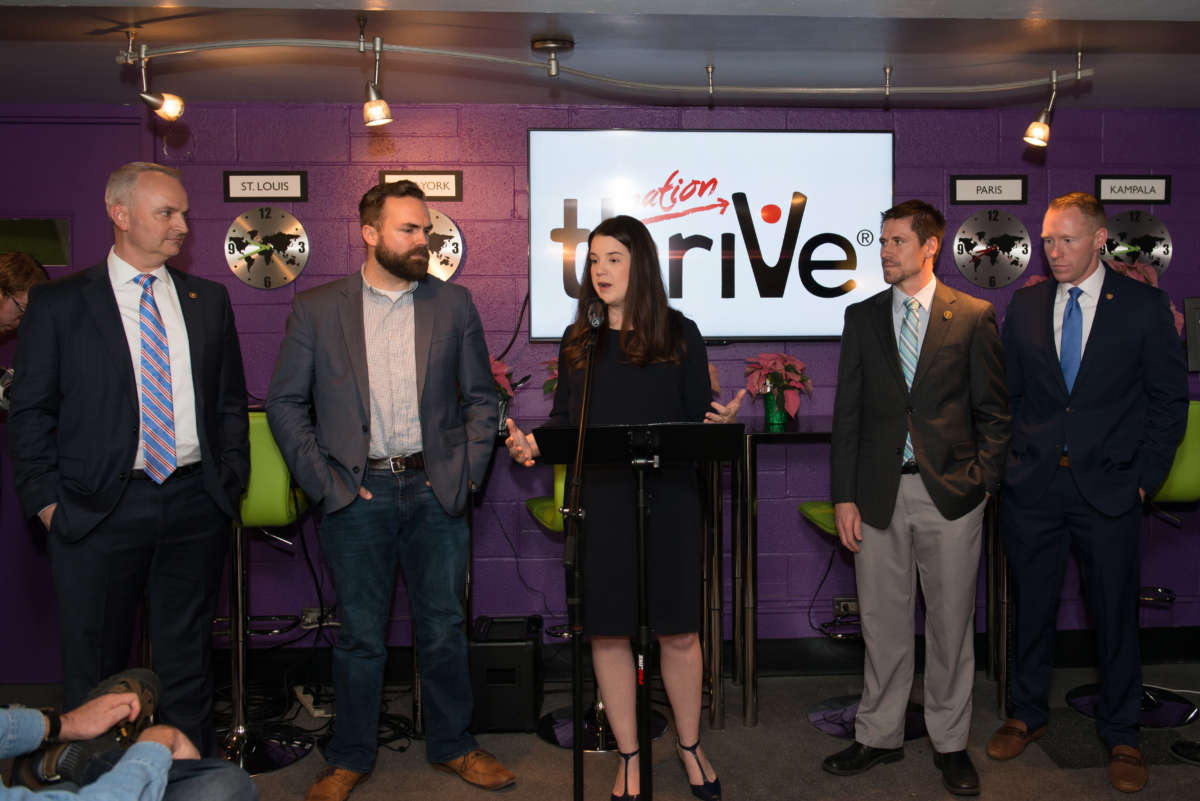A Republican lawmaker in Missouri is hoping to ban residents in her state from traveling to other states to obtain abortion services through an enforcement mechanism that is similar to that of Texas’s restrictive abortion ban.
State Rep. Mary Elizabeth Coleman (R) has attached amendments to a number of abortion bills that are currently being considered within the state legislature, with hopes that her amendment will become law should one of those measures pass. Her proposal would allow any state resident to file a lawsuit against any individual who helps a Missouri resident get an abortion — even if that abortion takes place outside of state lines.
This enforcement strategy is similar to that of an anti-abortion law in Texas, which bans all abortions after six weeks of pregnancy by incentivizing residents in the state to sue abortion providers for large fines.
There is only one abortion clinic in Missouri that is currently providing services, a Planned Parenthood location in St. Louis. Thousands of residents travel out of state to get abortions each year. The state also has an 8-week ban on abortions on the books, although that law is currently on hold as it is being litigated in courts. However, Missouri still forbids medical providers from performing abortions after 22 weeks of pregnancy.
The language in Coleman’s amendment would allow residents to sue clinics that help Missourians obtain abortions — from the doctors who actually perform the procedure to clinic staff who arrange appointment schedules.
Abortion rights activists say that Coleman’s amendment is unconstitutional, as it enforces state law on individuals who are not residents of Missouri, and is incongruent with interstate commerce rules. Olivia Cappello, the press officer for state media campaigns at Planned Parenthood, described Coleman’s proposal as “wild” and “bonkers.”
But other abortion advocates warn that all bets are off, especially when it comes to the current iteration of the U.S. Supreme Court, which has allowed the Texas law to stay in place while it goes through the appeals process, and is weighing whether to overturn abortion rights that have been recognized for nearly five decades.
“If you think this Supreme Court won’t find that a state’s interest in potential fetal life outweighs a pregnant person’s due process right to travel, you haven’t been paying attention,” wrote Imani Gandy, senior editor of law and policy at Rewire News Group. “This Court is lawless and DGAF.”
Media that fights fascism
Truthout is funded almost entirely by readers — that’s why we can speak truth to power and cut against the mainstream narrative. But independent journalists at Truthout face mounting political repression under Trump.
We rely on your support to survive McCarthyist censorship. Please make a tax-deductible one-time or monthly donation.
